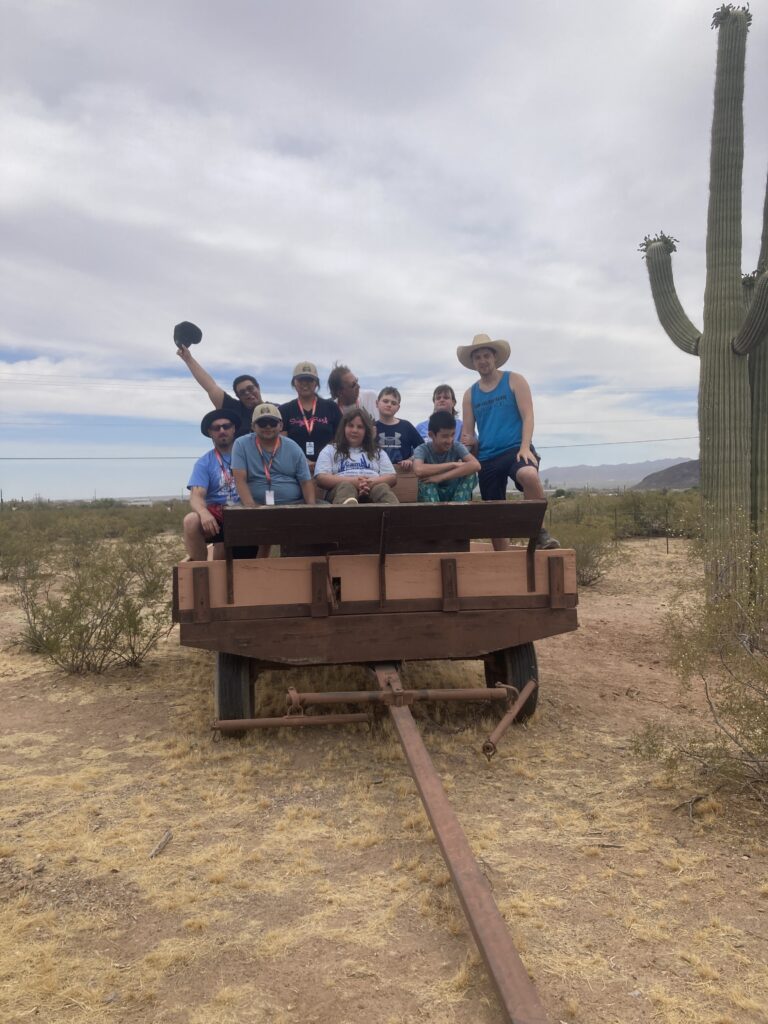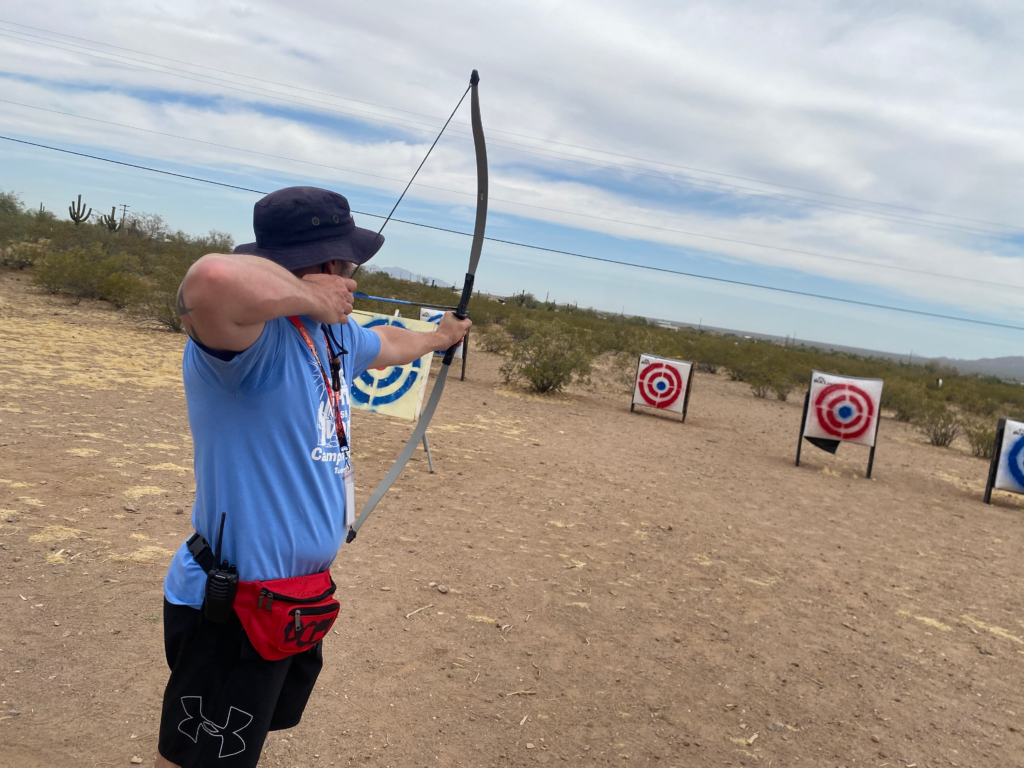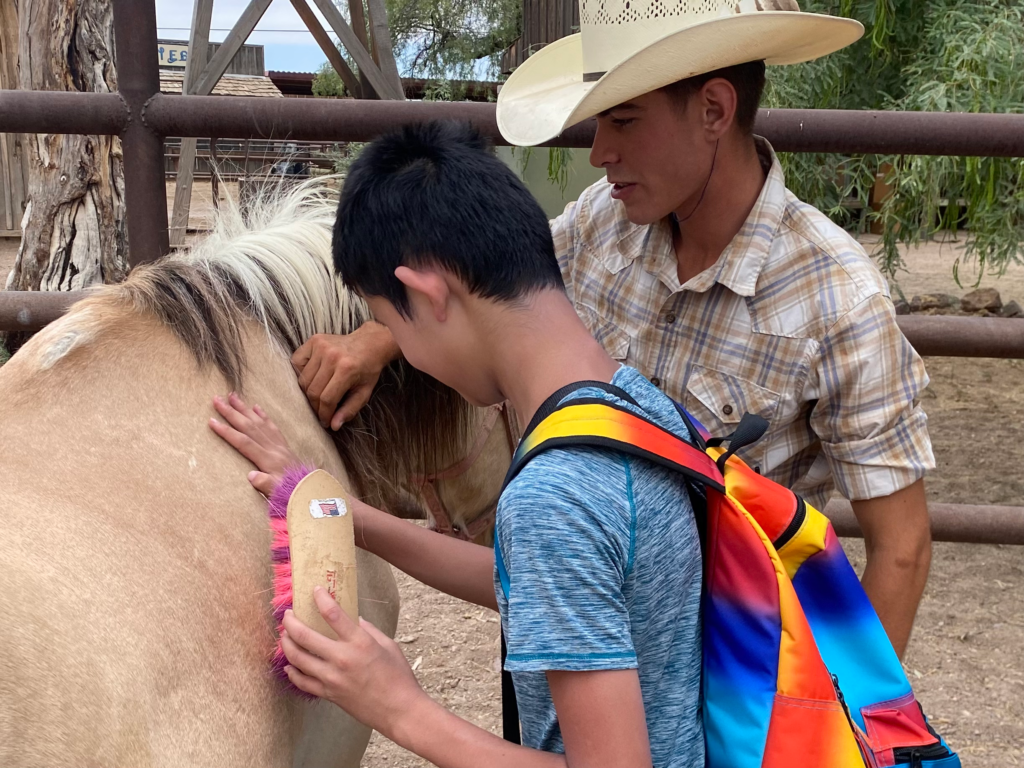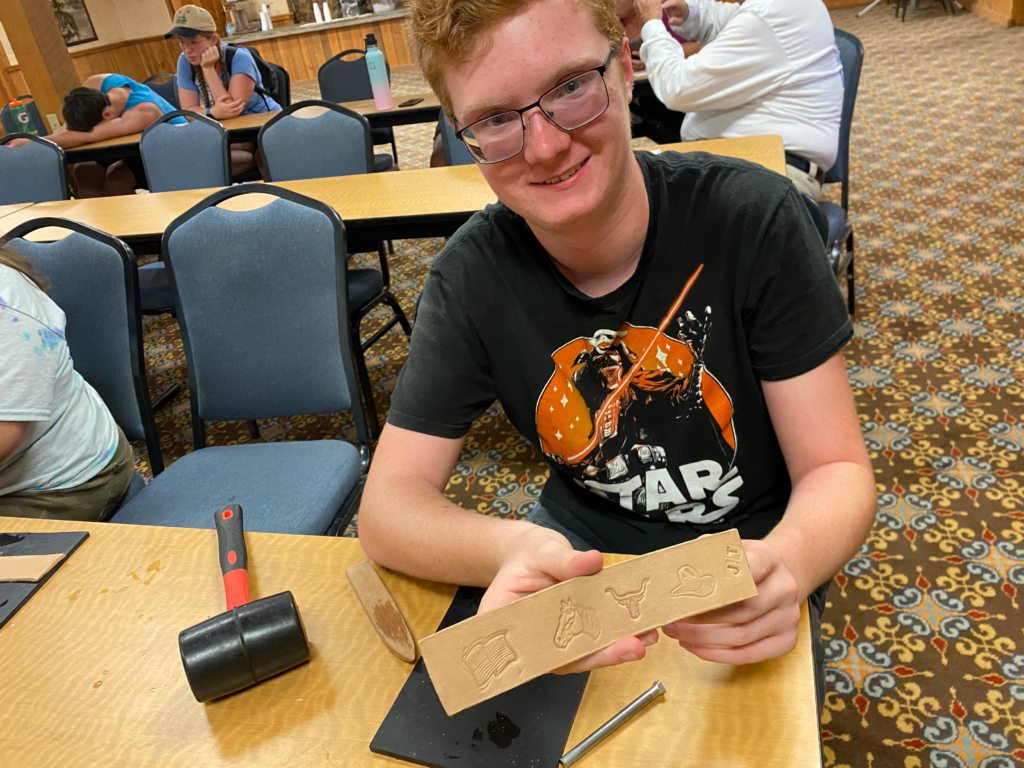Camp Abilities kids ages 10 and older learned horse care, leatherwork and other activities in an all-day ranch environment.

For nearly 60 years, White Stallion Ranch has been a preferred vacation spot for families in Arizona to experience life on a dude ranch.
Originally built in the 1900s, White Stallion has undergone numerous name changes, starting out as a cattle ranch. The property’s original construction was Mexican adobe brick made of mud and straw.
White Stallion became the ranch’s name in 1959, and was purchased six years later by Allen and Cynthia True. The couple moved there from Colorado, and the property has remained in the family ever since.
White Stallion was the site for the inaugural Camp Abilities Tucson Ranch Camp, sponsored by the Foreseeable Future Foundation.
Camp Abilities was established by Dr. Lauren Lieberman in 1996. Privately funded, it serves children and adults with multiple disabilities, including blindness.
Maria Lepore-Stevens, director of Camp Abilities Tucson as well as locations in Delaware and Pennsylvania, coordinated the ranch camp along with several of her staff and instructors from White Stallion. Lepore-Stevens, who grew up watching her mother Monica help Lieberman establish Camp Abilities, was taken with the beauty of the ranch and its historic surroundings.
“As you pull in, all around was mountains and cacti,” Lepore-Stevens said. “It was a beautiful setting.”
The ranch day was held June 9, and took place during the annual Camp Abilities week-long summer camp that features goalball, swimming, soccer and other sports-related activities. Initially, the ranch day was planned as an overnight stay, but Lepore-Stevens and her staff decided on a one-day visit instead.

“We were a bit iffy about what it would look like for us to have kids staying in the hotel that other people were staying in. But now that we’ve been there, it seems like it could be a possibility (next year).”
Once campers arrived at the ranch, they were divided into two classes. One concentrated on archery while the other learned about horse care. Each class swapped places before getting a lesson in leatherwork, making keychains and bookmarks.
After lunch, participants had a brief rest period before taking a swim in the pool. Campers then split up again for horseback riding. One group rode their horses around the camp with side walkers assisting them, while the other went on a trail ride. The latter group maneuvered the reins and brought their mounts to a stop without side walkers.

Campers consisted of 12 kids ages 10 and up, with sighted peer buddies in that same age group.
“At Camp Abilities Tucson, we serve adults with multiple disabilities including visual impairments. We had four young adults with visual impairments and multiple disabilities, and the rest were all kids.”
As expected, campers loved the experience of riding horses and getting a glimpse of ranch life.

“It was a perfect way to end camp. It was cool to be in a new location, it was cool to do new activities. We also had swim lessons all week, so it was the first time the kids got to be in the pool without having a swim lesson, which they liked.”
One day wasn’t enough to learn the finer points of horsemanship. But the ranch camp did allow kids the opportunity to learn independence and gain confidence being on a horse. Lepore-Stevens hopes to hold a similar camp next summer with more advanced instruction.
“As we were there, we were looking at how we could do it (for a longer period). We really would like to do more, to stay longer and have that overnight experience. I think our kids could handle it, and we could handle it now that we know what the facility looks like.”
